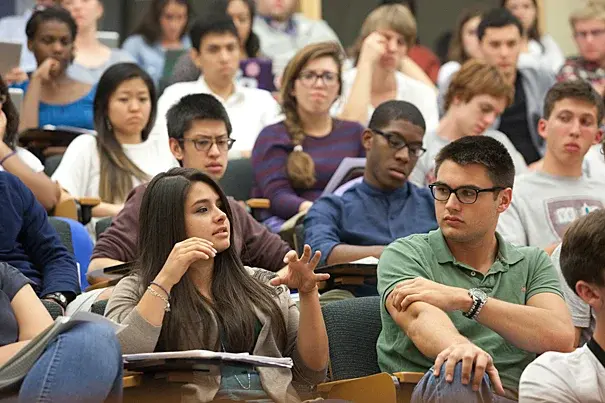Diversity on trial
- Joanne Jacobs

- Nov 2, 2022
- 2 min read

Diversity is a "fig leaf" for elite colleges' desire to discriminate on the basis of race, says linguist John McWhorter in a New York Times roundtable. Except for the occasional discussion class, it doesn't matter whether students come from different racial (or other) backgrounds, he argues.
Harvard's claim to diversity is "absurd," says Jay Caspian Kang. "This is a school where they have almost as many students from the top 0.1 percent — not the top 1 percent — of income earners as they have from the entire bottom 20 percent. Almost everyone at Harvard is wealthy."
Harvard values "visual diversity" over diversity of experience, background or perspective, writes David Lat on Substack. Experiences and viewpoints are irrelevant.
My husband and I are a white/Asian couple raising a son who is part-Black and part-Latino (Afro-Caribbean). Our son Harlan is also privileged: he has two well-educated, well-to-do parents, plus four well-educated, well-to-do grandparents.
. . . When Harlan applies to college, should he benefit simply from checking the Black and Latino boxes, even if he didn’t suffer significant adversity from being Black or Latino?
With all the money elite universities have invested in "holistic" admissions, they should be able to distinguish between the "descendant of former slaves who lives in poverty in rural Mississippi" and the "child of a Nigerian oil baron," Lat writes. They should consider whether Harlan gets an admissions "tip" compared to "a child of Chinese immigrants who lives in poverty in New York’s Chinatown, or a white kid who lives in poverty in rural Appalachia."
Heather Mac Donald, writing in City Journal, mocks a statement by Harvard President Lawrence Bacow that “research and lived experience teach us that each student’s learning experience is enriched by encountering classmates who grew up in different circumstances.”
The university seeks "different skin color," not different life experiences, she writes. Harvard "has shifted its focus to middle-income and wealthy blacks, privileging the children of well-to-do blacks far ahead of the children of poor blacks."
There's little evidence that diversity of color yields educational benefits, she writes. It looks good.
Mac Donald described how the University of California officials evaded the ban on racial preferences passed by voters in 1996 in her book, The Diversity Delusion. Giving preference to low-income students "backfired . . . when it yielded a wealth of Eastern European and Vietnamese admits," she writes. It was back to the drawing boards.






John McWhorter is very smart but this is as plain as the nose on ones face, Of course that's what it is - and the added benefit is the kids may have different shades of skin but they all have the exact same opinions about everything.